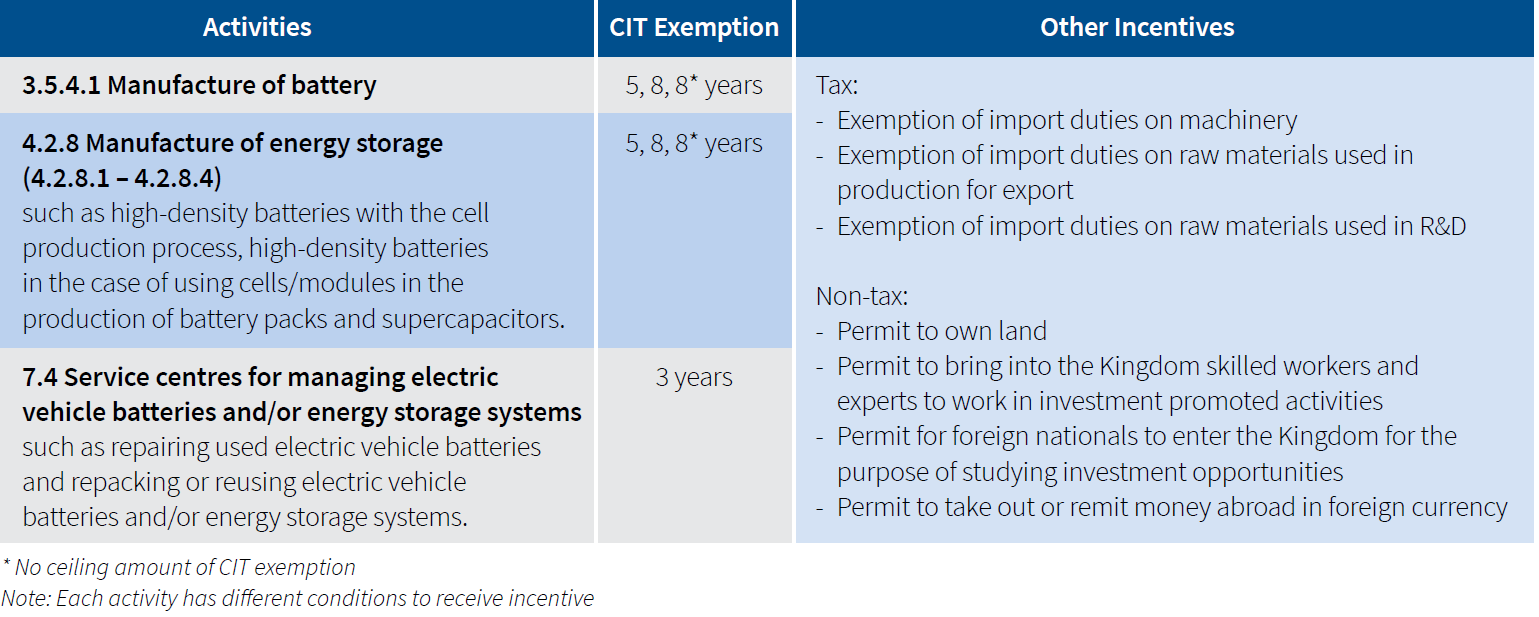
5 minute read
The global surge in green energy
Thailand Board of Investment (BOI)
Across the world, the momentum for renewable energy is accelerating. Nations are racing to secure energy independence, driven by rapid advancements in technology, lower costs of renewables, and an undeniable climate reality. Solar, wind, hydro, and bioenergy are no longer alternative solutions; they are the foundation of the global energy transition.
One of the most significant factors driving this movement is energy security and the plummeting costs of renewable technologies. Solar photovoltaic (PV) and wind power are no longer luxury options; they have become mainstream solutions. Meanwhile, advancements in energy storage, particularly lithium-ion batteries, are making it easier to integrate green power into grids, ensuring stability and reliability like never before.
Governments worldwide are responding with bold policies, setting carbon neutrality targets and expanding incentives for clean energy adoption. Simultaneously, leading corporations are embedding sustainability into their core strategies, recognising that green energy is not just a moral imperative but an economic necessity for long-term competitiveness.
THAILAND’S GREEN ENERGY POTENTIAL: A POWERHOUSE IN THE MAKING
Amid this global transformation, Thailand is positioning itself as a rising powerhouse in the clean energy sector. Blessed with abundant natural resources and a strategic position at the heart of ASEAN, the country is making significant strides toward energy sustainability. Under its Power Development Plan (PDP), Thailand aims to source 51 per cent of its energy from renewables by 2037, a vision that is well within reach given its rapid advancements in solar, wind, and biomass energy.
Additionally, Thailand has set ambitious sustainability targets, striving for carbon neutrality by 2050, and net-zero greenhouse gas emissions by 2065. Recently, the Thai government announced the first-ever sale of green electricity under the Utility Green Tariff, or UGT1, scheme to meet the growing demand of green energy from businesses and industries in Thailand, and also the allocation plan of Direct Power Purchase Agreement (Direct PPA) for up to 2,000 megawatts of renewable energy to semiconductor and data center projects.
This initiative allows businesses to procure electricity directly from producers, enhancing energy cost management and supporting carbon neutrality goals.
Solar power remains Thailand’s most promising renewable resource, and with ample sunlight year-round the country has massive potential for large-scale solar farms, rooftop solar installations, and floating solar projects. Government policies and private sector investments have significantly expanded solar capacity, making it a key contributor to the national grid.
Wind energy is also gaining traction, particularly in the northeast and southern coastal areas, where wind conditions are optimal for power generation. Meanwhile, hydropower and biomass – leveraging Thailand’s rich agricultural sector – continue to play a vital role in the country’s renewable energy mix.
Beyond power generation, Thailand is also carving out a niche as a manufacturing and research hub for green technology. Investments are flowing into solar panel production, wind turbine components and, crucially, battery manufacturing – a key enabler of the global renewable energy transition. With a robust industrial base and skilled workforce, the country is positioning itself as a key player in the global green energy supply chain.
Recognising the growing importance of energy storage technologies, Thailand has cultivated an ecosystem to support research, collaboration, and investment in this field. The Thailand Energy Storage Technology Association (TESTA) plays a key role in connecting stakeholders, fostering public awareness, and advancing innovation in energy storage solutions. TESTA brings together experts from academia, research institutions, government agencies, and the private sector, reinforcing Thailand’s position as a leader in energy storage development.
Thailand is positioning itself as a rising powerhouse in the clean energy sector.
Additionally, Thailand’s commitment to electric vehicles (EVs) is adding momentum to its green energy ambitions. With a clear goal to become an EV production hub, the government is aggressively promoting charging infrastructure and energy storage solutions. This shift is creating exciting investment opportunities, particularly in battery technology and smart grid innovations.
BOI INCENTIVES: SUPERCHARGING INVESTMENT IN BATTERY AND ENERGY STORAGE
To solidify Thailand position as a renewable energy leader, Thailand’s Board of Investment (BOI) has introduced a competitive incentive framework to attract investment across the entire renewable energy supply chain – not only in the renewable energy production but also in battery production and energy storage solutions. Recognising the critical role of energy storage in sustaining renewable energy adoption and supporting the growth of the electric vehicle sector, the BOI has created a business-friendly landscape with enticing benefits to encourage innovation and drive sustainable energy development in Thailand.
Key incentives include corporate income tax (CIT) exemptions of up to eight years for companies investing in battery production and energy storage technologies. Businesses can also benefit from import duty exemptions on machinery and essential raw materials, significantly reducing operational costs.
To stimulate innovation, the BOI extends additional incentives to companies engaging in R&D in energy storage technologies. These perks include tax breaks, research grants, and strategic collaborations with Thailand’s leading research institutions.
Beyond taxation, Thailand is also prioritising energy security and sustainability. Projects focused on smart grids, advanced battery manufacturing, and clean energy infrastructure are eligible for additional incentives.

THAILAND’S BRIGHT FUTURE IN GREEN ENERGY
As the global energy landscape evolves, Thailand is not just adapting – it’s leading the charge in clean energy innovation. With abundant resources, a progressive policy framework, and targeted investment incentives, the country is bridging the gap between sustainability and economic opportunity, making it an ideal destination for businesses seeking to capitalise on the clean energy era. As energy security and sustainability become global priorities, Thailand stands ready to power the future with cutting-edge solutions, innovation-driven investment, and a commitment to long-term green growth.
Contact details:
Thailand Board of Investment (BOI)
Tel: +66 2 553 8111
head@boi.go.th
www.boi.go.th










